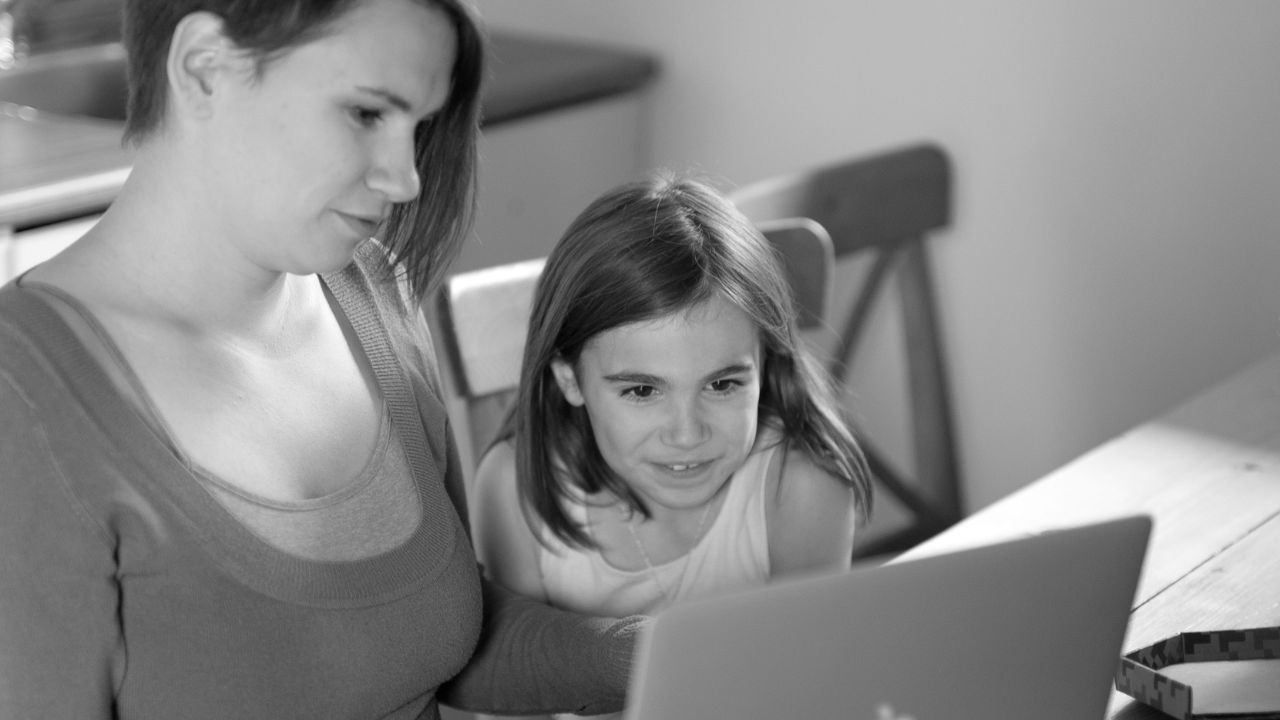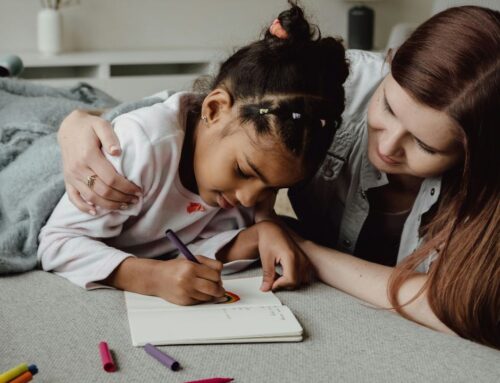 If you’ve ever doubted your choices and abilities as a home-learning parent, you are not alone! For many parents, choosing home learning for their children is an exciting decision—one full of possibilities, freedom and flexibility.
If you’ve ever doubted your choices and abilities as a home-learning parent, you are not alone! For many parents, choosing home learning for their children is an exciting decision—one full of possibilities, freedom and flexibility.
But alongside that excitement, many home-learning parents experience something else: imposter syndrome. The feeling of not being “qualified enough” to educate your child, or worrying that you’re “doing it wrong,” is hard.
SelfDesign parent Cheryl knows these feelings well. All three of her children—Toby (14), Sophie (12), and Phoenix (9)—have attended SelfDesign® Learning Community and been learning at home since kindergarten.
She’s navigated years of home learning, from early childhood to the transition into high school. The SelfDesign journey has been profound for Cheryl and her family. And yet, even with that experience, she admits that imposter syndrome has been a frequent companion on her journey.
The two sides of imposter syndrome
Home-learning parents may at times question their choice to have their children learning at home. Some start with a surge of confidence, only to have it diminish soon afterward.
“There’s really two kinds of imposter syndrome that come with being a home learning parent, ” Cheryl explained.
The first type of imposter syndrome is like an offshoot of the Dunning-Kruger effect. “When you start something, you feel really confident and then you start to realize you don’t know as much as you thought, and your confidence drops,” said Cheryl. “As your skills develop, your confidence never gets back to that really high level it was in the beginning, and the gap between your new level of competence-based confidence and where it was originally…that’s where imposter syndrome shows up for a lot of people.”
The second kind stems more from societal messaging. “We compare ourselves to traditional teachers. We think that there has to be things that teachers are doing that we don’t know how to do. Any sign that your children are falling behind their peers in traditional school can be a big trigger.”
SelfDesign Interim CEO Nikki Kenyon agrees that self-doubt is a natural part of the process. She has four kids who all learned from home at some point in their learning journeys.
“I think every parent questions whether they’re doing things right. I think that’s just part of parenting,” she said. “And as a home learning parent, you question yourself even more because you’re taking on that responsibility of your child’s education.”
Children learn when they are ready, not when a system dictates
When Cheryl’s children were learning to read, she would make sure that there were books placed all around the house about subjects they were naturally drawn to.
But the reading journey wasn’t easy. Cheryl’s children learned to read “late”. She had to push hard on herself not to force phonics programs when they weren’t reading at the same level as their peers.
“Because I believed then, and I still believe now, that children are ready to read on their own terms when they have the capacity and if they’re in an environment full of reading materials,” she explained. “They will develop those skills when they’re capable rather than when school tells them they should.”
But feelings of imposter syndrome did creep in when her child’s friends would come over, and she’d see their level of reading and wonder, ‘Am I messing my kid up?’
Fast forward to today, Cheryl has three avid readers, the oldest of which basically taught himself to read, all because he wanted to and was ready! And she trusted her instincts.
Shifting perspectives: you’ve been their teacher all along
Perhaps the most powerful realization for Cheryl—and one she hopes other home-learning parents embrace—is that teaching is something you’ve already been doing since day one.
“The thing that helps me most with imposter syndrome is to remember that I was my children’s first teacher,” said Cheryl. “I taught them to talk, crawl, walk, run, and how to cross the street safely. School subjects aren’t any more difficult to teach because home-learning parents have access to the same learning resources on the internet and through SelfDesign. If you can teach your child how to walk, then you can teach them how to do Pythagoras. As their parent, you know your child and how they learn.”
She encourages parents to see their role not as replacing a school teacher but as guiding their child’s unique learning journey. “You don’t have to have all the answers. You just need to know how to find them, alongside your child.”
The role of a learning consultant in building confidence
SelfDesign’s approach to personalized, learner-driven education has been a perfect fit for Cheryl’s family. “It’s structured enough to provide support but flexible enough to honour how each child learns best,” she says. “And having a BC-certified educator there to guide us means I never feel completely on my own.”
At SelfDesign, families are matched with a learning consultant who is a BC-certified educator. Cheryl’s family has had the same learning consultant for their entire journey. Cheryl can’t emphasize enough how much support they provide.
“The learning consultant relationship is really the core support for the learning path,” Cheryl said. “If you’re a new SelfDesign parent having personal doubts, tell your learning consultant how you feel. They’ve got the answers and guidance that you need.”
SelfDesign’s other resources, including its Learning Experiences Library, have also been helpful—and Cheryl has used her own organic learning pathways. “I love leaving things around for them to discover on their own. It’s incredible what one museum trip or one book left on the coffee table can spark.”
Advice for home learning parents experiencing imposter syndrome
 If you’re a home-learning parent feeling overwhelmed by doubt, Nikki has some important advice on taming that incessant internal critical voice.
If you’re a home-learning parent feeling overwhelmed by doubt, Nikki has some important advice on taming that incessant internal critical voice.
“Don’t be too hard on yourself; it doesn’t serve you or your kids,” she said. “As long as your child’s core needs are met, there is very little that you can do that will mess up your child’s learning process. As long as you are working towards creating a healthy, compassionate environment, there’s not a lot you can or can’t do to stop them from learning. You’ll try a million approaches and some will work, and some won’t. Just stay open and flexible to what ends up working!”
Nikki also urges parents to reach out for support. “Tell your learning consultant how you feel. Connect with other home-learning parents. Find people who get it. Because you are not alone in this.”
Cheryl reminds parents that fears and doubts in home learning are common and don’t reflect your capabilities.
“I’ve never met a home-learning parent who felt completely confident in succeeding,” she explained. “Even the most experienced parents felt incapable at first. The fear, doubt and imposter syndrome aren’t signs that you’re incapable; they’re just feelings. Courage isn’t not being afraid; it’s being afraid and doing it anyway.”
Embracing the journey
At the end of the day, Cheryl sees home learning as a series of ever-evolving challenges and triumphs. “Every week, it’s something new. But I chose this because I believed it would give my kids a better experience. And that belief has never wavered.”
So, if you’re a home-learning parent struggling with doubt, take heart. You are enough. You are capable. And most importantly—your child is learning exactly as they need to, with the best guide they could have: you.
Learn more about what it’s like to be a SelfDesign parent here: https://www.selfdesign.org/our-school/being-a-selfdesign-parent/







